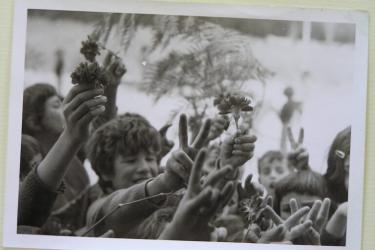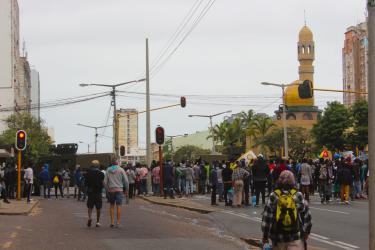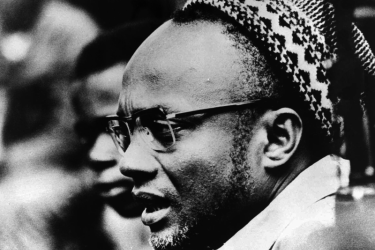Angola

When ‘the future was now’: Prefigurative politics and Portugal’s Carnation Revolution

The crisis of African liberators

“No fist is big enough to hide the sky”: 100 years of Amilcar Cabral
Portugal: 40 years after the Carnation Revolution

By Jorge Costa
Reminiscences of Nelson Mandela and the US anti-apartheid movement
Ike Nahem at the memorial for Soweto martyrs.
Angola: From liberation to `capitalismo selvagen'

[The following article first appeared in AfricaFile's At Issue Ezine, vol. 12 (May-October 2010), edited by John S. Saul, which examines the development of the southern African liberation movement-led countries. It has been posted at Links International Journal of Socialist Renewal with permission.]
* * *
By David Sogge
The legacy of anti-colonial struggles in Southern Africa: Liberation movements as governments

SWAPO's Sam Nujoma.
By Henning Melber
Southern Africa: The liberation struggle continues

[The following is the editorial in the latest edition of AfricaFile's At Issue Ezine, vol. 12 (May-October 2010), which examines the development of the southern African liberation movement-led countries. It has been posted at Links International Journal of Socialist Renewal with permission.]
By John S. Saul
Hillary Clinton in Africa: Promoting US corporate and military interests

By Firoze Manji
August 6, 2009 -- International media attention is focused on the August 3-14 visit of the US Secretary of State, Hillary Clinton, to seven countries in Africa. Judging by the behaviour of representatives of many African governments, there are great expectations that this visit –- following so closely after US President Barack Obama's two earlier visits to Egypt and Ghana this year -– holds out vast hope for Africa.
But what is the significance of Clinton’s visit? Does it really hold out hope for Africa? There are three dimensions to this visit: The African Growth and Opportunity Act (AGOA); oil and natural resource exploitation; and security.
/cloudfront-us-east-1.images.arcpublishing.com/lanacionar/L4VNKOWL4JDTVIOGZCDXACCHYU.jpg)

